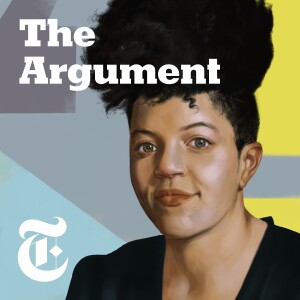
Requiring proof of vaccination isn’t a novel idea. Schools across the United States require students to get certain vaccinations before the age of 6. You need a yellow fever vaccine to travel to parts of Africa and South America. Now, with a global pandemic, the conversation has shifted to Covid vaccination requirements.
With little more than 50 percent of the United States fully vaccinated against Covid-19, and the Delta variant leading to increased case counts, it’s no surprise that our focus has shifted to vaccine mandates. This week, the Pfizer-BioNTech vaccine was granted approval by the Food and Drug Administration, which likely means more mandates and boosters.
Cities like New York and San Francisco already have mandates in place, for accessing indoor dining, gyms and concerts. But do these requirements really help those on the fence? Will the F.D.A.’s declaration sway the roughly 30 percent of Americans who said they’d be more likely to get the vaccine after it was fully approved? Or will it just alienate an entire population of people already hesitant to get the vaccine?
In this episode, Jane Coaston and her guests discuss the benefits and risks of vaccine mandates. Angela Rasmussen is a virologist at the Vaccine and Infectious Disease Organization (VIDO) at the University of Saskatchewan. And Marcella Tillett is the vice president of programs and partnerships at the Brooklyn Community Foundation, an organization that’s helping those in the area get vaccinated.
Mentioned in this episode:
“Do Mandatory Vaccines Violate Human Rights?” published in Quartz
“Everybody I Know Is Pissed Off” in The Atlantic, which gathers together some of the latest polling on vaccine mandates.
(A full transcript of this episode will be available midday on the Times website.)
Unlock full access to New York Times podcasts and explore everything from politics to pop culture. Subscribe today at nytimes.com/podcasts or on Apple Podcasts and Spotify.
More Episodes
 2020-09-03
2020-09-03
 2020-08-27
2020-08-27
 2020-08-20
2020-08-20
 2020-08-13
2020-08-13
 2020-08-06
2020-08-06
 2020-07-30
2020-07-30
 2020-07-23
2020-07-23
 2020-07-16
2020-07-16
 2020-07-09
2020-07-09
 2020-07-02
2020-07-02
 2020-06-25
2020-06-25
 2020-06-18
2020-06-18
 2020-06-04
2020-06-04
 2020-05-21
2020-05-21
 2020-05-14
2020-05-14
 2020-05-07
2020-05-07
 2020-04-30
2020-04-30
 2020-04-23
2020-04-23
 2020-04-16
2020-04-16
Create your
podcast in
minutes
- Full-featured podcast site
- Unlimited storage and bandwidth
- Comprehensive podcast stats
- Distribute to Apple Podcasts, Spotify, and more
- Make money with your podcast
It is Free
- Privacy Policy
- Cookie Policy
- Terms of Use
- Consent Preferences
- Copyright © 2015-2024 Podbean.com





